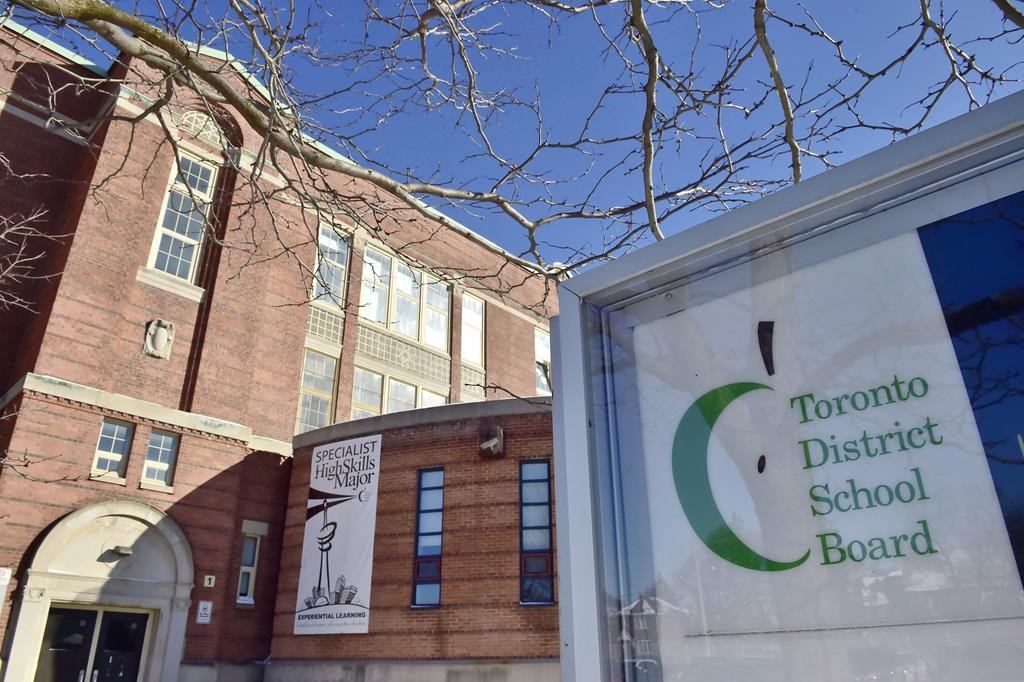TORONTO — Canada’s largest school board will make a course on Indigenous texts its compulsory Grade 11 English credit in a bid to ensure students graduate with a greater understanding of Indigenous culture and history.
Trustees with the Toronto District School Board voted Wednesday to replace its current mandatory Grade 11 course with one titled Understanding Contemporary First Nations, Métis and Inuit Voices.
“Indigenous Elders and scholars have reminded us that truth must come before reconciliation, yet the TDSB and the Ontario education system have no mechanism yet for ensuring that all students learn the truth about Indigenous brilliance, contributions, history, and learn from contemporary Indigenous voices in Canada,” Colleen Russell-Rawlins, the board’s education director, said in a statement.
“This is an exciting opportunity to ensure our students graduate with a greater understanding of Indigenous cultures and history than their parents/caregivers.”
The decision follows recent moves by several other school boards, including those in York and Durham regions, to make the course the compulsory Grade 11 English credit.
A course statement on the website for Lambton Kent District School Board, where it has been mandatory since 2017, lists Richard Wagamese’s “Indian Horse” and Thomas King’s “Green Grass, Running Water” as resources.
Ontario curriculum materials indicate the course was designed as an alternative to compulsory English ones and shares the same learning areas while exploring a range of Indigenous literary, oral, media and cultural texts.
TDSB says staff have been directed to prepare a report by June outlining how and when to roll out the new required course to all of its 110 secondary schools.
Ontario students are introduced to classics of the Western canon throughout high school English classes but are not commonly assigned Indigenous masterpieces.
“By incorporating Indigenous authors and texts into Grade 11 English, students are not only meeting the Grade 11 English expectations, they are being exposed to a whole range of remarkable First Nations, Métis and Inuit literature that they may not otherwise learn from in other courses,” said TDSB chair Rachel Chernos Lin in a statement.
Jennifer Brant, an assistant professor in the department of curriculum, teaching and learning at the University of Toronto’s Ontario Institute for Studies in Education, said teaching Indigenous literature in the course helps students to understand what truth and reconciliation is all about and to understand the history and of the land using Indigenous narratives.
“It’s really important that all students are learning about the literatures of this land,” she said.
Brant said studying Indigenous literaturehelps students develop a critical lens on contemporary issues.
“These courses will help students understand some of these wider pressing human rights issues that we’re seeing across Canada.”
This report by The Canadian Press was first published Feb. 2, 2023.



